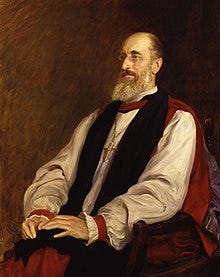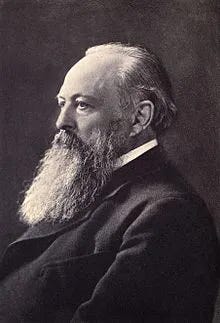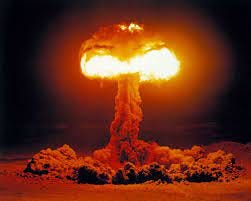Artificial Intelligence And The Corruption of Power.
The Fear of Bad Actors. What Would Lord Acton Say?
If “bad actors” get a hold of it, it might be a problem. That’s what the expert on A.I. or Artificial Intelligence said. I wasn’t bothered by the “if.” I was bothered by the idea that we are all “bad actors” when it comes to power. The danger of A.I. isn’t the machines. It is us, the “bad actors.”
The comment about “bad actors” reminded me of a series of letters two men sent to each other in the late 1800s. Think of it as an ancient social media thread. One with pleasant words less common to the modern version of that forum. Put on a posh accent. Now say this, “I am genuinely grateful to you.” Now try, “…take this long and contentious letter more as a testimony of heart confidence and respect than of hostility.”
Are you still there? And awake? To the point.
The words contained in these letters that most will be familiar are this, “Power tends to corrupt and absolute power corrupts absolutely.” They were written by a man named Lord Acton and sent to Bishop Creighton. The men were debating how modern historians should judge the actions of the past. What morality should be applied?


Mandell Creighton, was an Archbishop of the Church of England. Simply put, he had written a history of the Papacy. His judgment of Popes in moments like The Inquisition used moral relativism. That’s a way to say, “They didn’t know any better back then so we can’t be too harsh.” Lord Acton, a thinker of the day, historian, and politician, didn’t agree. He believed that the same moral standards should be applied to all. Moreover, he thought the powerful should face more scrutiny because power “tends to corrupt.”
“Power tends to corrupt and absolute power corrupts absolutely.”
As with all quotes, his famous line is out of context. What comes after the well-known words gets at what I see as the problem with much of A.I. After the immortalized words Acton wrote, “Great men are almost always bad men, even when they exercise influence and not authority: still more when you superadd the tendency or the certainty of corruption by authority. There is no worse heresy than that the office sanctifies the holder of it.”
“Great men are almost always bad men…”
Let’s break it down. “Great men are almost always bad men…”, does he mean people who achieve greatness are almost all bad? It would seem so. The success, the power itself, corrupts them. Like enough whiskey, or whisky, will get any person drunk. You cannot resist the effects. Most of humanity lacks the capacity to resist the dark trappings of power. No one, or virtually no one, is immune.
“…even when they exercise influence and not authority.”
Moving on he writes, “…even when they exercise influence and not authority.” I take that to mean even absent a direct order they can corrupt events. One puts a thumb on the scale, altering outcomes. Do we, they, the powerful, when possible, tilt things to their will or favor, even unintentionally? Even with the best of intentions, the power corrupts their ability to be fair or just. Given the power to do so, you put yourself first. You make sure you are taken care of.
“There is no worse heresy than that the office sanctifies the holder of it.”
Finally, Acton ends with, “There is no worse heresy than that the office sanctifies the holder of it.” Rules for thee and not for me. A police officer who speeds knowing that even if they get pulled over they can escape punishment with the flashing of a badge. A politician or judge trades on their office and the information they are privy to for financial gain. There is no worse opinion than those who believe they are above the law because of the job or office they hold. Because of the power they have.
This brings us back to A.I., specifically language-based A.I.. It has gained its “knowledge” by scouring or scraping the web for all that humanity has released from its minds and set free on the world. Its power is derived from what we and those before us have done. If one takes Lord Acton’s warning about power to heart it’s plausible to see how the very seeds that gave birth to A.I. are hopelessly corrupted.
There is much I don’t know. My expertise on this is limited to growing up as computers came of age. The 70s? I had a pal with Atari. The 80s? A summer camp where I learned to program in Basic. I had that turtle moving all over. The 90s? I paid my rent via dial-up modem and online banking. There was no confirmation it worked. I called the bank. The customer service rep had no idea how to confirm payment was going to be made. We are a long way from those days. The question that remains? Can we confirm the outcome?
The dramatic expansion of Artificial Intelligence and its availability will change life for all of us and those to come. Much fear invades this conversation. From students using it to cheat. Or, more importantly, not learn. Then there is the doomsday, end of days, scenarios in films like The Terminator. Much of this fear is warranted. What I fear isn’t the machine as much as the brilliantly imperfect creator of it.
We are “bad actors.” Human history is littered with examples of this. As Lord Acton warned a person’s capacity for morality diminishes as their power grows. What then will machines fueled by all of humanity’s power be capable of? What will they be inclined to do with “absolute power?”


